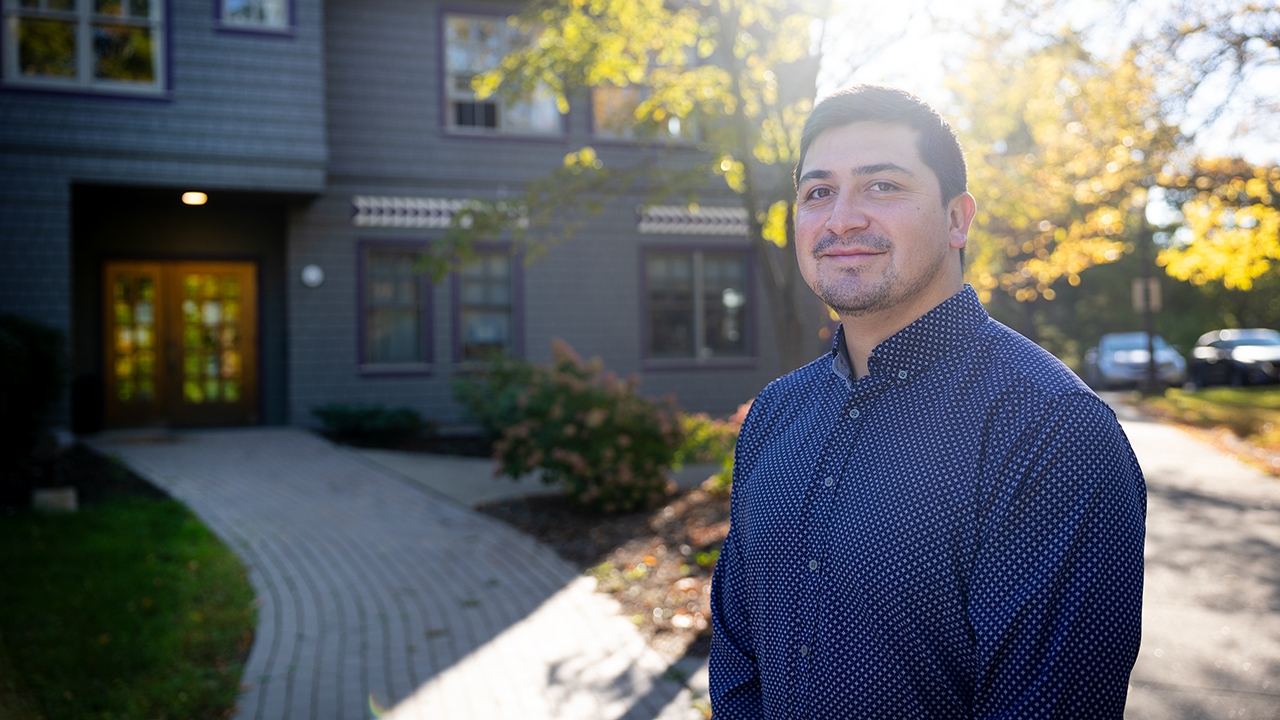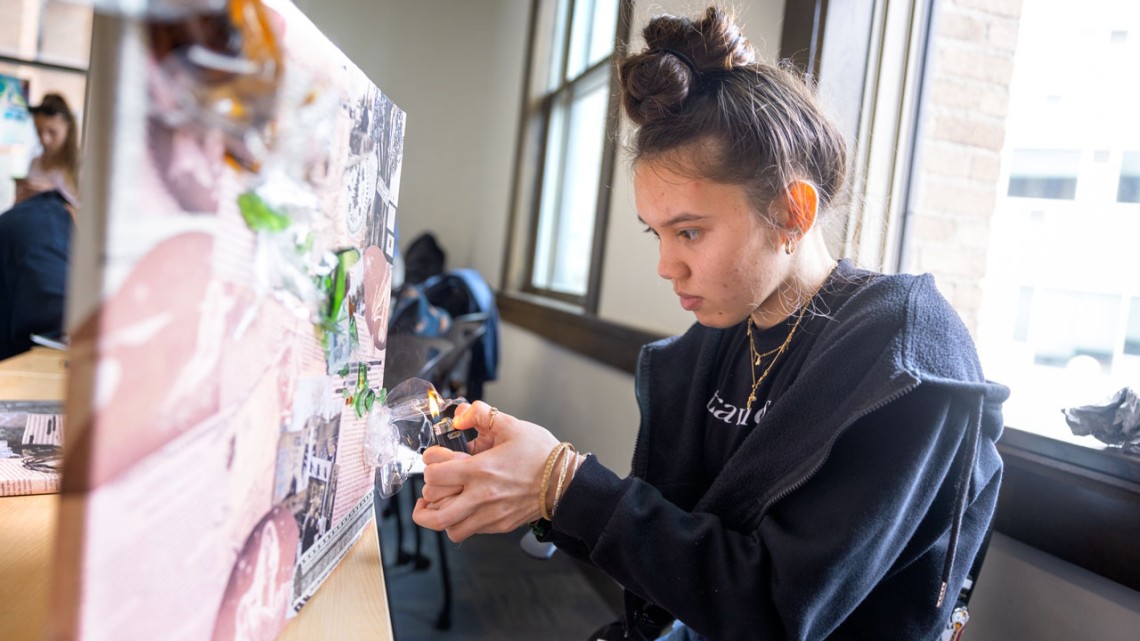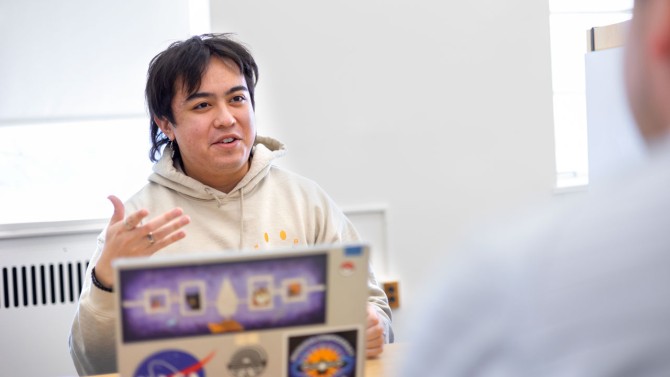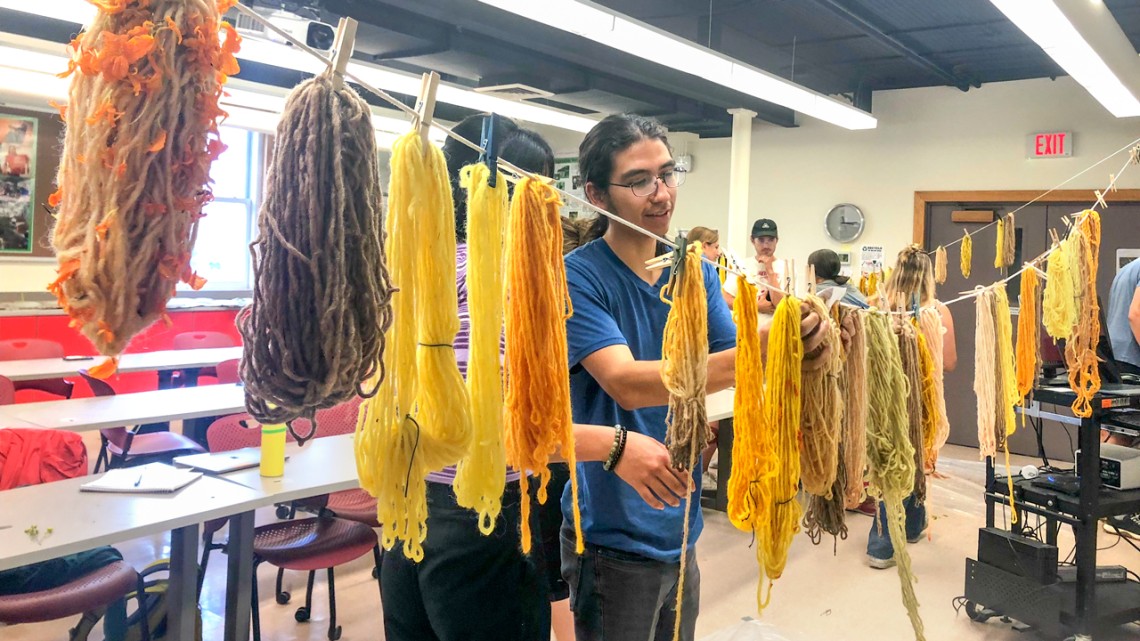Commitment to Indigenous Communities and Nations in North America
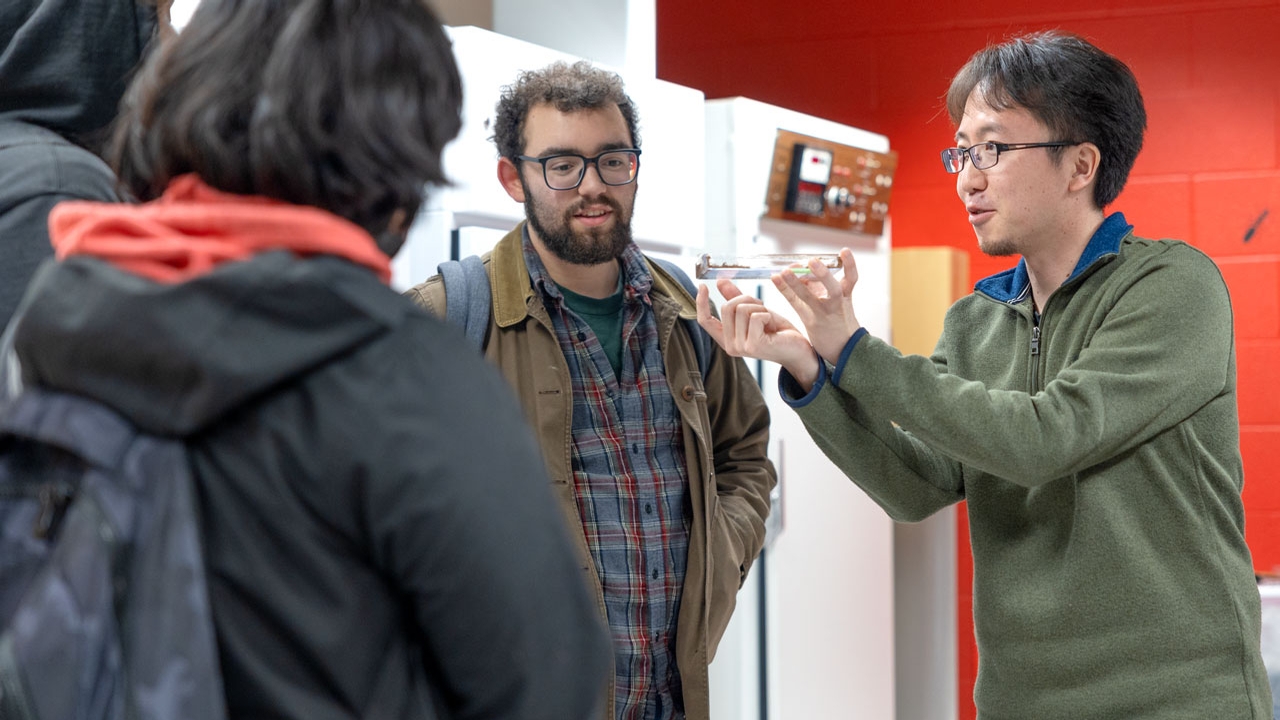
Commitment to Indigenous Communities and Nations in North America
Cornell has long, meaningful and historic ties to North American Indigenous Nations and communities. Our Ithaca campus is located on the traditional homelands of the Gayogo̱hó:nǫɁ (the Cayuga Nation), members of the Hodinǫ̱hsǫ́:nih (Haudenosaunee) Confederacy, and the university has ongoing vital relationships with Gayogo̱hó:nǫɁ traditional leadership and citizens. Cornell is proud to continue to nurture and build vibrant programs supporting education, research and collaboration with and for Indigenous communities.
Land Acknowledgement
Cornell University is located on the traditional homelands of the Gayogo̱hó:nǫɁ (the Cayuga Nation). The Gayogo̱hó:nǫɁ are members of the Hodinǫ̱hsǫ́:nih (Haudenosaunee) Confederacy, an alliance of six sovereign nations with a historic and contemporary presence on this land. The confederacy precedes the establishment of Cornell University, New York state and the United States of America. We acknowledge the painful history of Gayogo̱hó:nǫɁ dispossession, and honor the ongoing connection of Gayogo̱hó:nǫɁ people, past and present, to these lands and waters.
Education
As a leading research university with a mission to “discover, preserve and disseminate knowledge” and “to educate the next generation of global citizens,” Cornell has established educational programs and partnerships specifically geared toward meeting this goal for Indigenous students. These include pre-college programs for high school youth and dedicated university staff to assist prospective students navigating the admissions and financial aid process. Once enrolled, Cornell offers Indigenous students academic guidance and support from a committed community of staff, faculty and peers, including those affiliated with the American Indian and Indigenous Studies Program (AIISP). Each year, AIISP hosts Promising Futures, which provides an immersive on-campus experience for North American Indigenous high school students.
The Graduate School actively recruits Indigenous graduate students by partnering with AIISP and off-campus programs, such as the national and regional conferences of the American Indian Science and Engineering Society (AISES), and has hosted on-campus programs for Indigenous students to preview the graduate experience. Cornell’s AISES chapter earned the organization’s 2023 Pursuit of Excellence Award for its efforts in support of Indigenous student outreach and community and professional development.
Research
Cornell’s commitment to inquiry and research conducted by Indigenous scholars and related to Indigenous Nations and communities, both local and global, is evident across the university. Recent examples range from partnering with Indigenous Alaskan communities to locate the communal graves of victims of the Spanish influenza on the Seward Peninsula to quantifying the impacts of forced migration and climate change on Indigenous food systems for Tribal Nations across North America.
Engagement
From efforts focused on preserving and documenting endangered Indigenous languages in New York state, to developing culturally appropriate landscapes for Indigenous community housing, to understanding how traditional ecological knowledge can inform sustainability solutions, Cornell faculty, staff and students actively engage with Indigenous community partners to identify needs and develop solutions together.
